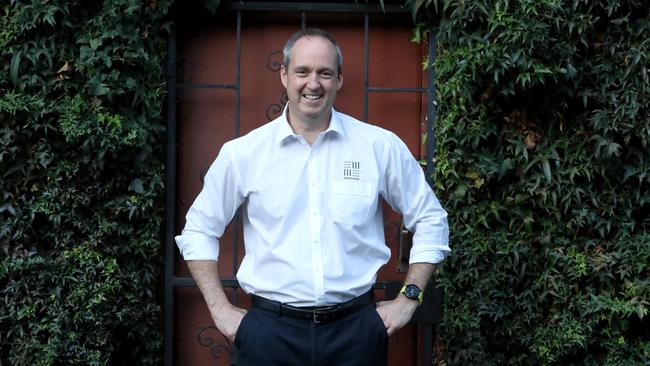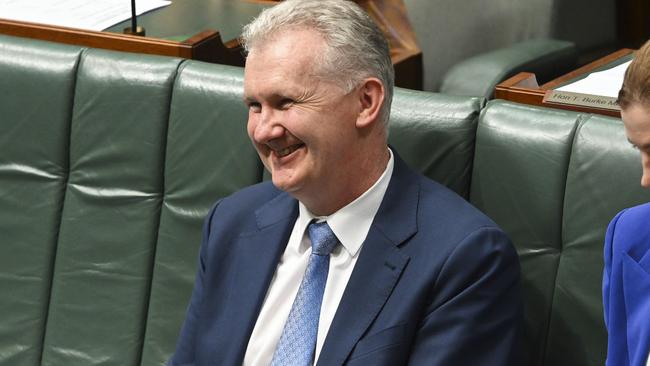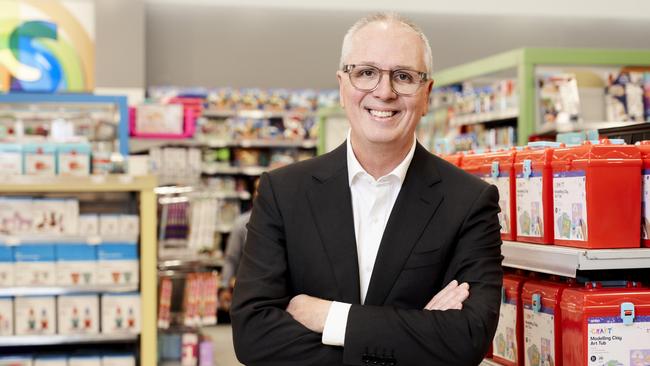Radical IR changes to fire up inflation, CEOs warn
Workplace changes will do little to lift the nation’s prosperity, business leaders tell The Australian’s 2024 CEO Survey.

Business
Don't miss out on the headlines from Business. Followed categories will be added to My News.
The Albanese government’s “unnecessary” workplace reforms only add to complexity and threaten to drive down productivity when the economy can least afford it, the nation’s top chief executives have warned.
Industrial relations remained a big area of contention among the nation’s business leaders in The Australian’s 2024 CEO Survey. The workplace shake-up, led by industrial relations minister Tony Burke, has been called out as undermining growth and hurting the longer-term prospects for the economy.

The first tranche of changes, which include uniform pay rates for companies using labour hire and the criminalisation of underpayment of super and wages, were passed by parliament this month following support from the Senate crossbench.
More than 70 leaders from companies across all areas of the economy including mining, banking, retail and industrial took part in The Australian’s 2024 CEO Survey, outlining their views on the outlook for growth, housing crisis, energy and tax reform.
But it was the rapid re-regulation of workplace rules that chief executives laid out as the key concern. Business leaders have labelled the additional changes as unnecessary, while stoking inflation by removing flexibility in the workforce. They point out strong pay rises and employment growth of recent years have been delivered under the existing industrial relations regime.

Rio Tinto chief executive Jakob Stausholm said what Australia needed were reforms to ensure a productive and flexible workforce.
“Not the increase in complexity, costs and uncertainty we see in the current Industrial Relations Bill,” he said.
The second tranche of planned changes tackling casual and gig economy workers will be set to face parliament in February next year and CEOs now have these in their sights.
Wesfarmers boss Rob Scott said: “Any regulatory change that makes it harder or more risky to hire casuals, and reduces the ability for casual workers to benefit from the flexibility and higher rates of pay, will be very bad for workers, especially young Australians.”
Paul Digney, the boss of ports and rail operator Qube, said productivity offsets have gone missing in the industrial relations debate.
“Indeed, there is almost nothing about productivity in the government’s proposed labour reforms which run the risk of skewing the other way,” he said.
Productivity gains are everything the economy needs at the moment.
“It will be key to further alleviating pressure on inflation and interest rates, and it will be key to unlocking business investment. And it will be key to driving non-inflationary wage growth,” Mr Digney said.

Graham Kerr, who heads up Perth-based global base metals miner South32, said the government’s recent workplace changes “could materially impact our costs, productivity and global competitiveness”.
“At a time when more investment is needed to produce the commodities required for the transition to a low-carbon world, we think this is a negative outcome for our industry,” Mr Kerr said.
Lynas boss Amanda Lacaze said while employee costs have increased, the mining industry remains committed to paying its people well.
“We can afford to do this so long as we continue to innovate and improve productivity,” she said.
Beyond mining and resources, Kmart chief executive Ian Bailey has said new industrial relations rules “will do little to reduce complexity in an already complex system nor will they contribute to increased productivity in the wider economy, both of which are very much needed”.
“Undertaken correctly, we can return to an environment where effective bargaining between team members and employers delivers beneficial outcomes for all stakeholders, which should always be our starting point,” he said.
Originally published as Radical IR changes to fire up inflation, CEOs warn





